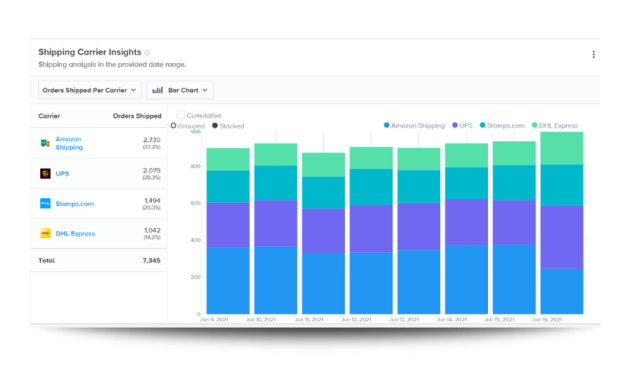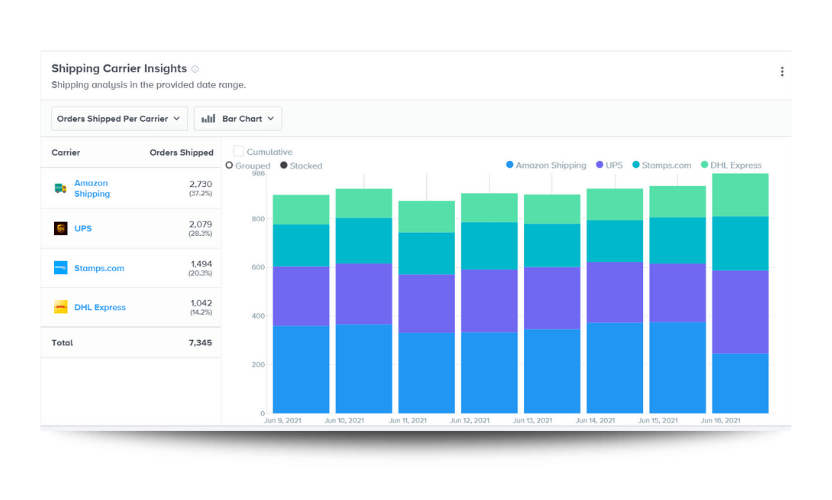
The Ultimate Guide to Business Intelligence Software: Data-Driven Insights for Success
In today’s hyper-competitive business landscape, data is no longer just an asset; it’s the lifeblood of informed decision-making. Businesses of all sizes are grappling with vast amounts of data, seeking ways to extract meaningful insights and gain a competitive edge. This is where Business Intelligence (BI) software steps in. This ultimate guide delves deep into the world of BI software, providing a comprehensive overview of its capabilities, benefits, and how to choose the right solution for your specific needs. We’ll explore the power of data-driven insights and how BI software can transform your organization.
The core function of Business Intelligence software is to analyze raw data. This analysis unlocks actionable insights. These insights drive smarter decisions. BI software empowers organizations to understand their performance. It enables them to identify trends and opportunities. Ultimately, BI software helps businesses achieve their strategic goals. This guide will equip you with the knowledge to navigate the complex world of BI software. You will gain the ability to make informed decisions about your data strategy. We’ll explore the different types of BI software, its core features, and the crucial role it plays in modern business.
Understanding the Fundamentals of Business Intelligence Software
At its core, Business Intelligence software is designed to collect, process, analyze, and visualize data. This data comes from various sources. These include databases, spreadsheets, and cloud applications. The software then transforms this raw data into easily understandable formats. This allows for data-driven decision-making. The goal is to provide users with a clear picture of their business performance.
Key functionalities of BI software include data extraction, transformation, and loading (ETL). It also includes data warehousing, data analysis, and reporting. Data visualization tools are also very important. These tools allow users to create dashboards, charts, and graphs. These help communicate insights effectively. BI software often integrates with other business systems, like CRM and ERP. This integration provides a holistic view of the business.
Key Features to Look For
When evaluating BI software, consider these key features:
- Data Integration: The ability to connect to various data sources.
- Data Warehousing: Efficient data storage and management capabilities.
- Data Analysis: Advanced analytical functions.
- Reporting: Customizable reports and dashboards.
- Data Visualization: Interactive charts and graphs.
- User-Friendliness: Intuitive interface for easy use.
- Scalability: Ability to handle growing data volumes.
- Security: Robust security features to protect data.
- Mobile Access: Access to data on mobile devices.
Benefits of Implementing Business Intelligence Software
The advantages of implementing BI software are numerous and far-reaching. Organizations that embrace BI often experience significant improvements across various areas. These improvements contribute to better decision-making. They also lead to improved efficiency and profitability. Here’s a closer look at the key benefits:
Improved Decision-Making
BI software empowers decision-makers with data-driven insights. This leads to more informed choices. Instead of relying on gut feelings or intuition, decisions are based on facts. This reduces the risk of errors and increases the likelihood of success. Access to real-time data allows for quicker responses to changing market conditions. This agility is a significant competitive advantage. BI software provides a 360-degree view of the business. This view helps identify areas for improvement. It also helps identify opportunities for growth.
Enhanced Efficiency
BI software automates many manual tasks. This includes data collection, analysis, and reporting. Automation frees up employees to focus on more strategic initiatives. Streamlined processes reduce operational costs. They also improve overall productivity. BI software helps identify bottlenecks in business processes. This helps optimize workflows. It also eliminates inefficiencies. This leads to better resource allocation and cost savings.
Increased Profitability
By identifying trends and patterns, BI software helps businesses optimize pricing. It also helps with product development. It also helps with marketing campaigns. Data-driven insights can improve customer retention rates. This leads to increased revenue. BI software helps identify cost-saving opportunities. This leads to improved profit margins. It also helps businesses to make more informed investment decisions.
Better Customer Understanding
BI software helps businesses understand customer behavior. It analyzes customer data to identify preferences. It also identifies purchasing patterns. This allows businesses to personalize their offerings. It also helps them improve customer service. This leads to increased customer satisfaction and loyalty. BI software can also help identify new customer segments. This allows businesses to expand their reach.
Types of Business Intelligence Software
The market offers a wide range of BI software solutions. These cater to different business needs and budgets. Understanding the various types of BI software is crucial for selecting the right one.
Self-Service BI Tools
These tools empower business users to analyze data. They do not require specialized IT skills. They feature user-friendly interfaces and drag-and-drop functionality. This allows for easy data exploration and analysis. Self-service BI tools are ideal for smaller businesses. They are also great for departments within larger organizations.
Enterprise BI Platforms
These platforms offer comprehensive BI capabilities. They are designed for large organizations. They provide advanced features like data governance and security. Enterprise BI platforms typically support a wide range of data sources. They also support complex data analysis. They often integrate with other enterprise systems.
Cloud-Based BI Solutions
These solutions are hosted in the cloud. They offer flexibility and scalability. They provide easy access to data from anywhere. Cloud-based BI solutions often have lower upfront costs. They also offer automatic updates and maintenance.
Specialized BI Tools
These tools focus on specific industries or business functions. Examples include retail analytics and financial analytics. They offer pre-built dashboards and reports. They also offer tailored analytical capabilities.
Choosing the Right Business Intelligence Software
Selecting the right BI software is a crucial decision. It will impact your organization’s ability to leverage data. Here are some key factors to consider:
Define Your Business Needs
Identify your specific business goals. Determine what data you need to analyze. Identify the key performance indicators (KPIs) you want to track. Understanding your needs will help you narrow down your options.
Evaluate Software Features
Assess the features offered by different BI software vendors. Ensure the software meets your requirements. Consider factors like data integration capabilities, reporting tools, and data visualization options.
Consider Scalability and Flexibility
Choose software that can grow with your business. Ensure it can handle increasing data volumes and user needs. Look for solutions that offer flexibility and customization options.
Assess User-Friendliness
The software should be easy to use for all users. Consider the interface and training requirements. Choose a solution that is intuitive and user-friendly.
Evaluate Cost and ROI
Compare the costs of different BI software solutions. Consider the total cost of ownership. Assess the potential return on investment (ROI). Calculate the potential benefits and savings. This will help you justify the investment.
Consider Data Security and Governance
Data security is crucial. Ensure the software has robust security features. Consider data governance policies and compliance requirements. This will protect your sensitive data.
Implementing Business Intelligence Software: Best Practices
Successfully implementing BI software requires careful planning and execution. Here are some best practices to follow:
Develop a Clear Implementation Plan
Create a detailed plan. This should outline the project scope, timeline, and resources. This plan should include data migration, user training, and testing. This will ensure a smooth implementation process.
Involve Stakeholders
Involve key stakeholders from the beginning. Get their input and support. This will increase the likelihood of success. It will also ensure that the software meets their needs.
Provide Adequate Training
Provide comprehensive training to all users. This will ensure they can effectively use the software. Offer ongoing support and resources. This will maximize user adoption.
Test and Validate Data
Thoroughly test the software before deployment. Validate the accuracy of your data. Ensure that the reports and dashboards are accurate and reliable.
Monitor and Optimize Performance
Continuously monitor the software’s performance. Identify areas for optimization. Regularly review your data and reports. This will ensure that you are getting the most value.
The Future of Business Intelligence Software
The field of BI software is constantly evolving. Several trends are shaping its future. These trends will continue to drive innovation. They will also provide new opportunities for businesses.
Artificial Intelligence (AI) and Machine Learning (ML)
AI and ML are transforming BI. They automate tasks. They also provide advanced analytical capabilities. Predictive analytics and data-driven insights are becoming more prevalent. AI and ML will continue to play a significant role in BI. They will help businesses gain deeper insights.
Data Democratization
The trend of making data accessible to everyone is growing. Self-service BI tools are empowering business users. This allows them to analyze data without IT assistance. This will lead to faster decision-making. It also leads to a more data-driven culture.
Cloud-Based BI
Cloud-based BI solutions are becoming increasingly popular. They offer scalability and flexibility. They also provide easy access to data. This trend will continue as businesses move their data to the cloud.
Data Visualization
Data visualization is becoming more sophisticated. Interactive dashboards and advanced charts are becoming more common. This will make data easier to understand. It will also make it easier to communicate insights.
Conclusion: Harnessing the Power of Data with Business Intelligence Software
Business Intelligence software is essential for success. It helps businesses make data-driven decisions. It also helps them gain a competitive advantage. By understanding the fundamentals of BI software, its benefits, and the different types, you can make informed decisions. You can also choose the right solution for your needs. Implementing BI software effectively requires careful planning and execution. By following best practices, you can maximize its value. The future of BI software is promising. AI, cloud computing, and data democratization are driving innovation. Embrace the power of data. Use Business Intelligence software to transform your business. Make data-driven insights a core element of your strategy. This will unlock your full potential for success.
Implementing the right Business Intelligence (BI) software is vital. It unlocks data-driven insights. This guide has explored key aspects. It covers the fundamentals of Business Intelligence software. It also covers its benefits and types. We highlighted crucial features to look for. We also provided guidance on choosing the right solution. Best practices for implementation were also discussed. The future of Business Intelligence is exciting. AI and cloud computing will continue to drive innovation. Embrace the power of data. Leverage Business Intelligence software. This will empower your business. It will also drive informed decisions. Make Business Intelligence a key element of your strategy. This will achieve your business goals.
The core function of Business Intelligence software is to analyze raw data. This analysis unlocks actionable insights. These insights drive smarter decisions. Business Intelligence software empowers organizations to understand their performance. It enables them to identify trends and opportunities. Ultimately, Business Intelligence software helps businesses achieve their strategic goals.
Business Intelligence software offers many benefits. It improves decision-making. It enhances efficiency. It increases profitability. Also, it improves customer understanding.
Choosing the right Business Intelligence software requires careful consideration. Define your business needs. Evaluate software features. Consider scalability and flexibility. Assess user-friendliness. Evaluate cost and ROI. Consider data security and governance. This will help you make an informed decision.
With the right Business Intelligence software, your organization can achieve its goals. You can gain a competitive edge. You can also transform your business. Embrace the power of data. Utilize Business Intelligence software. This will propel your success.
[See also: Related Article Titles]

